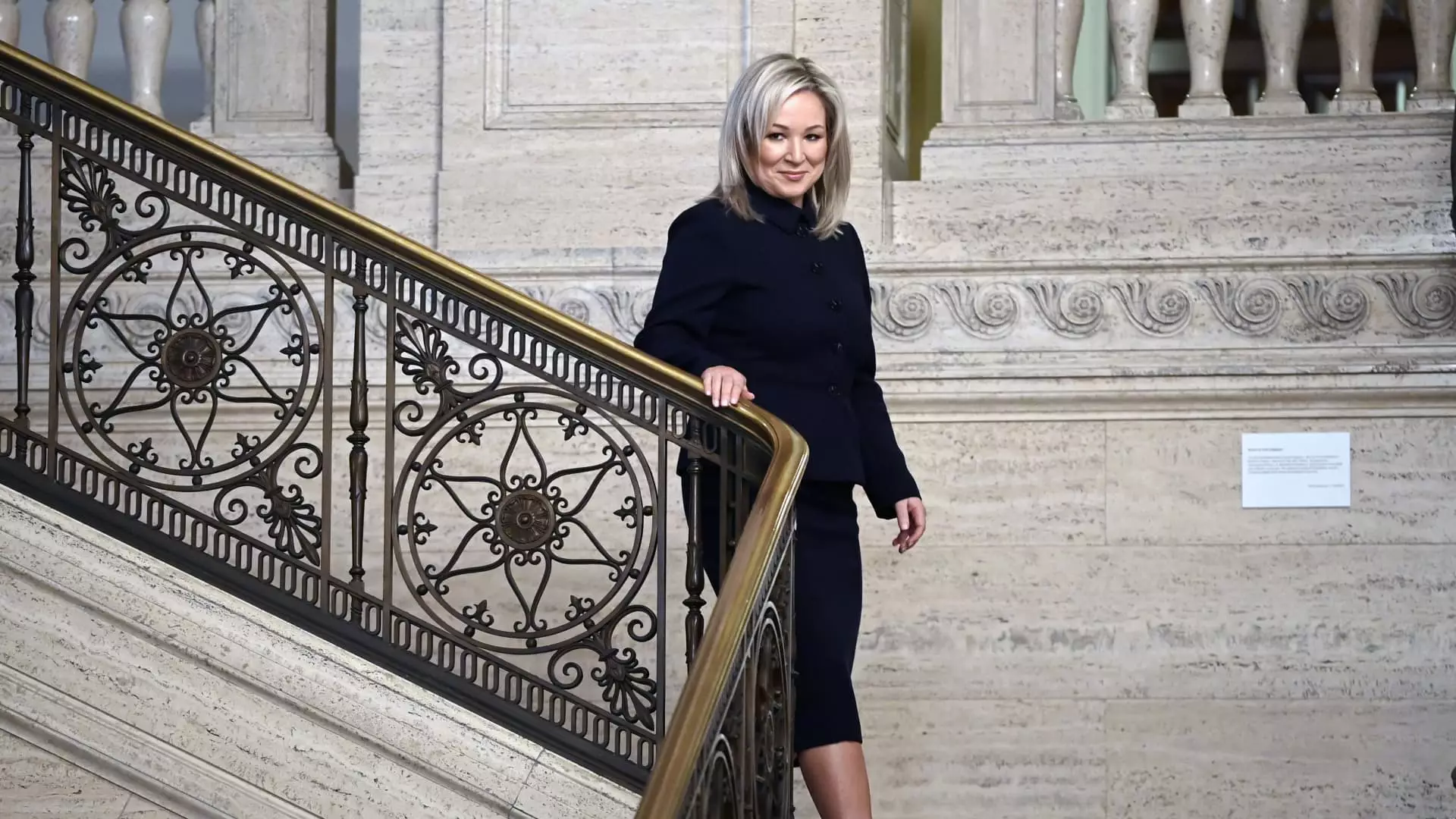Northern Ireland’s political landscape witnessed a monumental shift on Saturday as Michelle O’Neill, an Irish nationalist, was appointed as the region’s First Minister for the first time in history. This historic milestone marks a significant departure from the century-old dominance of pro-British unionists. The appointment, though delayed due to the watershed 2022 election, reflects the growing influence of Sinn Fein, a party that has long advocated for a united Ireland and now believes that dream is “within touching distance.” Importantly, this development occurs as the rival Democratic Unionist Party (DUP) formally ends its two-year boycott of power-sharing government, following a trade deal struck with the British government to address post-Brexit trade frictions.
Michelle O’Neill, 47, addressed the assembly, emphasizing the significance of the day: “This is an historic day which represents a new dawn. I will serve everyone equally and be a First Minister for all.” Expressing remorse, she added, “I am sorry for all the lives lost during the conflict without exception.” The British government’s minister for the region, Chris Heaton-Harris, echoed O’Neill’s sentiment, stating that the restoration of government represented a “great day for Northern Ireland.” Both their statements highlight the narrative of hope and reconciliation that the appointment of O’Neill symbolizes.
Michelle O’Neill’s appointment as First Minister also signifies the rise of a new generation of Sinn Fein politicians not directly involved in Northern Ireland’s decades-long conflict. Sinn Fein, as the former political wing of the Irish Republican Army (IRA), had long been ostracized by the political establishment on both sides of the border. However, with Sinn Fein now the most popular party in the Irish Republic, the political landscape is witnessing a significant realignment. This new generation brings fresh perspectives and ideas, unburdened by the weight of past grievances, and poised to confront the pressing challenges faced by the region.
Alongside Michelle O’Neill, the post of deputy First Minister was filled by Emma Little-Pengelly from the DUP. While this role carries equal power, it bears less symbolic weight. This balance in power-sharing between Sinn Fein and the DUP demonstrates the significance of inclusivity and collaboration in a post-conflict society. Though opposition to O’Neill’s appointment exists, particularly from the Traditional Unionist Voice party, the overall focus should be on the progress made and the potential for unity and prosperity that lies ahead.
While Sinn Fein has been vocal about the prospect of unity, the reality is that all politicians in Northern Ireland face intense pressure to address basic issues that have been neglected during the two-year hiatus. The hiatus has strained public services, and citizens expect their elected representatives to deliver tangible improvements to their everyday lives. Ultimately, the decision to hold a referendum on unity lies with the British government, and current opinion polls consistently show a clear majority in favor of remaining part of the United Kingdom. This underscores the need for politicians to prioritize bread-and-butter issues that directly impact their constituents.
The two-year shutdown of the power-sharing government has intensified calls for reforming the rules that have allowed the largest party on either side to repeatedly disable power-sharing for extended periods. The Irish and British governments have expressed openness to considering reforms, recognizing the frustration felt by the people of Northern Ireland. The general mood on the streets of Belfast reflects a desire for change and a growing impatience to see progress on key issues. This expectation makes it imperative for political leaders to focus on tangible improvements and prioritize the needs of the people they serve.
Sinn Fein’s success in Northern Ireland’s 2022 election can be attributed to their emphasis on economic concerns, mirroring their strategy in the Irish Republic where the party has found electoral success by prioritizing everyday issues like housing. This shift in focus showcases Sinn Fein’s adaptability and their understanding of the ever-evolving priorities of the electorate. It also suggests that, going forward, Sinn Fein will continue to prioritize economic prosperity, job creation, and social welfare as part of their strategy to win the hearts and minds of the people they represent.
The appointment of Michelle O’Neill as the First Minister of Northern Ireland marks a remarkable turning point in the region’s history. It symbolizes a departure from a century-old pro-British unionist dominance and ushers in a new era of Irish nationalist influence. With Sinn Fein’s growing popularity and the DUP’s reengagement in power-sharing, Northern Ireland stands at a pivotal juncture. The challenge ahead lies in addressing the everyday issues faced by the people while fostering unity and reconciliation. Only through inclusive governance and prioritizing the needs of the people can Northern Ireland continue on its path towards a brighter and more prosperous future.

Leave a Reply